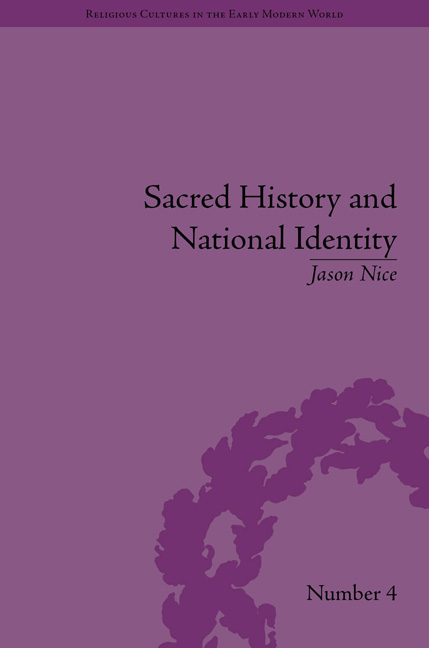2 - Britannia and Gallia Christiana
Summary
Quant à moy, comme François et Dionysien, de rosis atque lilijs …
Jacques Doublet, Histoire de l'Abbaye de S. Denys (1625)1. Religion and National Identity
As André Burguière affirms, ‘The theme of origins, which naturally introduced the genealogical structure of the national story, constitutes the most convenient observatory for the study of the construction of this narrative, and is the most suited to comparative analysis’. During the Renaissance many historians, beginning with Flavio Biondo in Italy, engineered the genre of national history, which would eventually contribute to the formation of national identities. Times of crisis see an increase in historical production, and in the case of France ‘the threat to the very survival of the patrie [during the Wars of Religion] called forth one of the most massive outbursts of patriotic writings in the early modern period’. However, more than just patriotism fuelled these writings. As Philippe Desan contends, ‘historians of the sixteenth century strove to give the manners, laws and language of France the objective form of the nation … and thus contributed to the establishment of a national conscience’. In England, according to the literary critic Richard Helgerson, this ‘rhetoric of nationhood’ manifested in many different forms, but historical discourse ‘more than any other discursive form gave Tudor Englishmen a sense of their national identity’.
Recent scholarship has focused upon France or England's ethnic and/or political origins, while the subject of episcopal origins and national identity remains relatively unexplored. On one hand, this is due to an incorrect assumption that sacred historians (like the Benedictines of the Congregation of St Maur) ‘were devoted chiefly to religious and ecclesiastical history … and they had little influence upon the broader histories of France’. However, works by Joseph Strayer, Myriam Yardeni, Colette Beaune and Alain Tallon testify to a growing interest in the relationship between sacred historiography and national identity. The relationship seems to have been at least recognized, if not fully exploited, by many érudits such as the parliamentaire Jacques Auguste de Thou who maintained that ‘the patrie is a second divinity, that its laws came from God’. Others, such as Jacques Doublet, spoke of ‘bons Catholiques et bons Françoises’ as if one and the same.
- Type
- Chapter
- Information
- Sacred History and National IdentityComparisons Between Early Modern Wales and Brittany, pp. 45 - 60Publisher: Pickering & ChattoFirst published in: 2014

